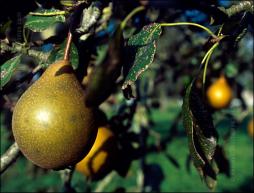[FR] The Future of Biofuels and their Impact on Agricultural Markets

Biofuels, renewable energies discovered with the internal combustion engine and banned by the automotive industry in the mid-19th century, have been back in the spotlight of the European and global energy scene since the early 2000s. Long shunned by economies fuelled by ultra-competitive oil, fuels derived from plant-based raw materials are seeing their relevance revived at a time of efforts to reduce greenhouse gas emissions, increased pressure on oil prices and growing risks arising from the EU’s energy dependence. EU measures proposed for climate and energy purposes could, in the medium term, radically change the prospects for European farmers, who are seeking new outlets and keen to restore an image somewhat tarnished by the pollution problems caused by their activities.
On 10 January 2007, the European Commission presented its ‘Energy Action Plan’. This plan proposes to include 20% renewable energy in the EU’s energy mix and to require Member States to incorporate 10% biofuels into their transport fuel mix by 2020. Achieving these targets will require Europeans to mobilise both part of their public resources to ensure the development of these new energies and part of their arable land for energy crops. Furthermore, the launch of the ‘health check’ of the Common Agricultural Policy and the debates on the new directions for European agriculture in 2008-2009 bring forward the deadline for strategic choices for the future of European agriculture and call for serious consideration of the opportunities offered to farmers by biofuels.
As part of the CAP 2013 study programme, which aims to develop proposals for reforming and financing agricultural policy, Notre Europe is analysing, in a first phase, the profound changes that have altered the framework for agricultural activity since the CAP was established in 1962, including biofuels. In this study, Pierre Rainelli goes beyond the rhetorical enthusiasm that often surrounds the subject by first analysing the economic conditions for their development (in relation to oil prices) and then the potential impact of the widespread use of these crops on the balance of agricultural markets under different fiscal and technical assumptions.
This study is therefore timely, as it helps to decipher the challenges and dilemmas that Europeans will face in the debate on the place of biofuels in European agriculture after 2013.




